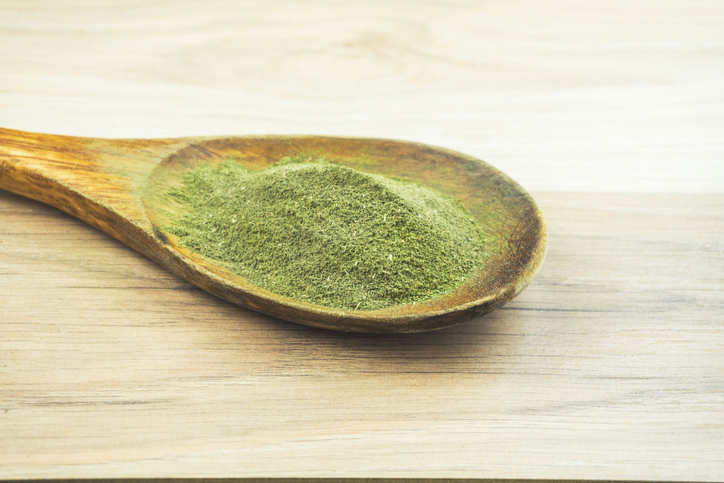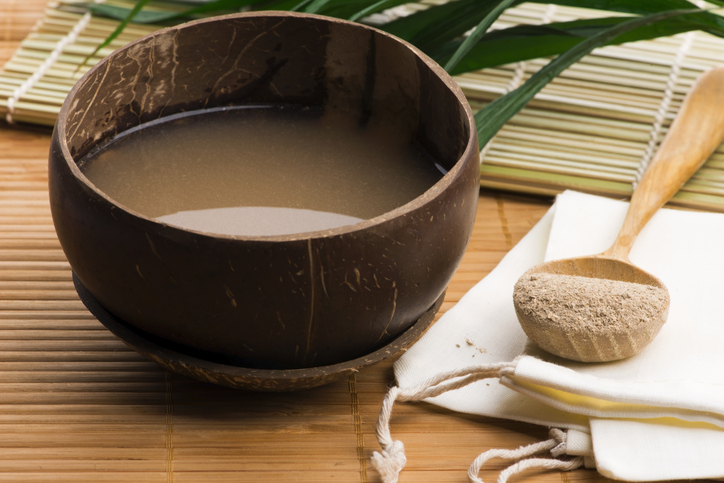Is Taking Kava for Anxiety or Sleeplessness Worth the Potential Risk?

By Joy Stephenson-Laws, J.D., Founder
I am a firm believer in the important role that nutrition, including plant-based foods, play in being proactive about our health. So, when I saw that another kava bar had recently opened in my neighborhood, coupled with an expanded offering of kava products in my local health food store, I decided to learn more about this purported natural remedy for anxiety (among other things).
I wanted to know two things – does it work as well as or better than other natural products and, even more importantly, is it safe? We all know that just because something is “natural” does not mean it is either effective or without risk.
In case you’re not familiar with kava, it is made from the root of the kava plant (Piper methysticum). It has been used by Pacific Islanders for medicinal and ceremonial purposes for at least 3,000 years. Also known as kava kava and kawa, the roots are crushed into a paste, which is then traditionally combined with coconut milk, water or a mixture of both to make a beverage. Kava has a slightly pungent taste with a color ranging from gray/tan to opaque greenish. Both taste and aroma depend on which form of kava is used to prepare the beverage.
People traditionally drank kava with others, making it a social event, such as what happens in our modern-day kava bars (of which there are at least 100 in the U.S.). Today, in addition to the traditional kava beverage, people also prepare kava tea and take it in capsule or pill form. Some also combine it with juice or other drinks.

Proponents of kava claim that its health benefits include pain-relief, reduced anxiety, help with withdrawal from benzodiazepines and better sleep. Its active ingredients are known as kavalactones, and they are believed to be responsible for kava’s effects.
There is credible research that supports the claim that kava does help anxiety and reduce its symptoms. In one study, for example, participants with anxiety were given either kava extract or a placebo. After six weeks, the researchers found that kava did have a significant effect (albeit a small one) in reducing anxiety symptoms. Another suggests that kava may also improve both stress and anxiety. It is clear that more research is needed since the U.S. National Institutes of Health reports that the various research studies on kava have produced mixed results.
In the U.S., kava is classified as a “dietary supplement” by the FDA. Kava products are available in retail outlets, health food stores, online and in kava bars. It is so popular that some estimates are that the value of the kava market in the U.S. may reach $775 million by 2030.
Kava Side Effects and Risks
As do other health products – whether natural or man-made – kava may produce a variety of side effects as well as create health risks. Side effects may include:
- Headaches
- Nausea, stomach aches
- Drowsiness
- Weight loss
- Dizziness
- Scaly, dry, flaky skin (with long-term, high-dose use)
Kava may also interact with other various substances and medications, so be sure to talk with a competent health practitioner before taking kava. This is especially the case if you also drink alcohol, are taking anticonvulsants, anxiolytics, diuretics or levodopa. Kava may have special risks if taken by women during pregnancy or while they are nursing.
While the World Health Organization has said that moderate kava use presents an “acceptably low level of health risk,” there have been reports of kava increasing the risk of liver disease. In fact, many countries have banned or regulated its sale and use. If you are using kava and have any of the following symptoms, which may indicate liver disease, you should pause kava use and talk with your doctor:
- Yellow skin or eyes (jaundice)
- Fatigue
- Rashes
- Fever
You should also avoid kava if you currently have or have a history of liver disease or Parkinson’s disease. If you have any upcoming surgeries, also be sure to let your doctor know you are using kava since it may interact with anesthesia.
There are many other natural and nutrition-based ways to help you battle anxiety and insomnia that have been shown to be effective and safe (many of which we have covered here in pH blogs). Let’s talk first about anxiety, which is one of the most common health problems in the U.S. One of the more interesting insights into how to treat anxiety is making sure you are getting the right probiotics. Two in particular, the Lactobacillus helveticus strain R0052 and Bifidobacterium longum strain R0175, have been shown to improve anxiety and depression symptoms by as much as 50-55 percent.
Two other nutrients that may help with anxiety are magnesium and L-theanine. The former is an essential mineral that is needed for literally hundreds of processes and reactions in the body, including energy. It is also important in sugar breakdown and use, blood pressure regulation and muscle and nerve function, including the heart muscle.
For its part, L-theanine is an amino acid. Our bodies use amino acids to make proteins, which is one of the six nutrients our bodies need to function efficiently. (The other five are carbohydrates, fats, water, vitamins and minerals). Protein is used to build and repair tissues and make enzymes, hormones and other body chemicals. It is known to reduce chemicals in the brain that are linked to stress and anxiety.
You get this amino acid by drinking green tea or by including specific mushrooms (Boletus badius) in your diet. It also is available as a dietary supplement, but if you supplement, do so after speaking with a competent healthcare practitioner.
If you’re looking for help for insomnia, there are many alternatives to taking a pharmaceutical such as Ambien. Here are some useful nutrients and foods to help you get the rest you deserve without succumbing to the hazy perils of heavy medications.
Since many nutrient deficiencies or imbalances can contribute to anxiety, insomnia and other mental and physical health issues, I would suggest getting a comprehensive nutrient test to be sure your body is getting the right nutrients and in the right amounts. Armed with the results, you and your doctor can then determine if you should be changing your food choices or adding any supplements to your diet.
Enjoy your healthy life!
The pH professional health care team includes recognized experts from a variety of health care and related disciplines, including physicians, attorneys, nutritionists, nurses, and certified fitness instructors. This team also includes the members of the pH Medical Advisory Board, which constantly monitors all pH programs, products, and services. To learn more about the pH Medical Advisory Board, click here.







